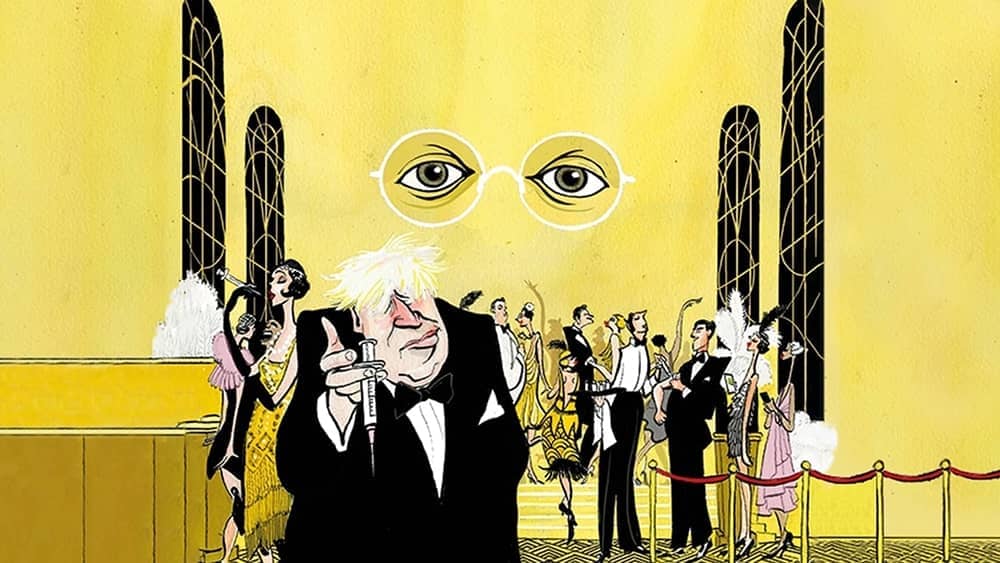In normal circumstances, no one would care if staff in No. 10 held a Christmas party. But last year, Boris Johnson made parties illegal. Throughout most of December, London was under Tier 3 or 4 restrictions. Social gatherings were strictly forbidden and anyone who broke the rules was at risk of a £10,000 fine. The Prime Minister could have issued guidance and asked people to use their judgment. Instead, he criminalised non-compliance and sent the police after those who didn’t follow his rules.
This is why it matters very much if a party was held in Downing Street last December. Despite multiple denials from No. 10 that any such event took place, a leaked video clip has revealed aides joking about the alleged party four days later. It seems beyond all doubt now that cheese and wine were enjoyed in the company of others — which would have explicitly broken the rules. Still, No. 10 insists that ‘all rules were followed’: a claim the Metropolitan police have now announced they will investigate.
The PM stands accused not merely of hypocrisy but of lying. It wasn’t so long ago that the latter offence would swiftly have ended a minister’s career — there are echoes of John Profumo’s ‘there was no impropriety whatsoever’ in Johnson’s attempts to shove aside questions. But even if things do not progress to that conclusion, the revelation that his staff were engaged in any kind of revelry while the rest of the country was forbidden from even seeing family will rightly generate huge anger among those who obeyed Covid restrictions to the letter.
The PM’s great error was to put such draconian rules on the statute book in the first place
Almost 2,000 people have been prosecuted in Westminster magistrates’ court alone for breaking lockdown rules or quarantine. Those who organised get-togethers were fined thousands of pounds. They were not able to laugh it off as a cheese-and-wine ‘business meeting’. The book was thrown at them under the laws the Prime Minister pushed through parliament.
This follows a familiar pattern of ministers and advisers failing to obey the rules they have forced on us over the past two years. We have witnessed Professor Neil Ferguson’s dalliances with his mistress, Dominic Cummings’s trip to Barnard Castle, and Matt Hancock’s romantic embrace in his office. Some might view the issue of No. 10 parties as mere tittle-tattle, but that is not how it is going to be received by the many people who were forbidden from meeting friends and family, or even from saying goodbye to dying relatives.
The PM’s great error, however, lies not so much in allowing a breach of the rules in his own offices. His mistake was to put such draconian rules on the statute book in the first place. To order bars, restaurants, theatres and non-essential shops to close was one thing — and will be argued about for many years to come. To criminalise private contact between individuals, family members included, was quite another.
While some people seemed happy to accept the loss of personal freedom, a great many others found themselves questioning their assumption that Britain is a free society. To have police fine people for sunbathing, and employ drones to catch people walking their dogs, crossed a line which few had imagined would ever be crossed in the UK. After all, outside the penal system, no such sanctions forbidding human contact had ever been employed in history — neither in wartime nor in previous pandemics.
Lockdown rules were based on a fundamental error: that people could not possibly be relied on to exercise self-control on social distancing unless threatened with prosecution. By the time of the first lockdown, this had already been disproved. Mobile-phone data shows that personal movement had fallen by 60 per cent; use of the London Underground was just 15 per cent of what it had been at the start of March 2020. There was little left to lock down, because the public had already locked themselves down. There was never any need to deploy the police.
When Neil Ferguson was caught consorting with his mistress, he gave the excuse that, because he’d had Covid several weeks earlier, he assumed that he would have immunity and not be infectious. His reasoning was perfectly logical. But why could we not all be trusted to make such judgments? With Covid restrictions, the concept of personal responsibility went out of the window.
If he survives the rush of public anger over last December’s party, the Prime Minister will, we hope, learn from the experience. With advisers once again pressing for severe restrictions on our freedom in response to the Omicron variant, the government should rule out once and for all yet more criminal sanctions against everyday human contact. Give us the information, encourage us to be vaccinated, and if it becomes necessary then advise us to keep meetings with friends and family to a minimum.
But the state should not be trying to micromanage our lives through criminal sanctions, even in a pandemic. As this government has discovered, such measures can come back to bite.






Comments